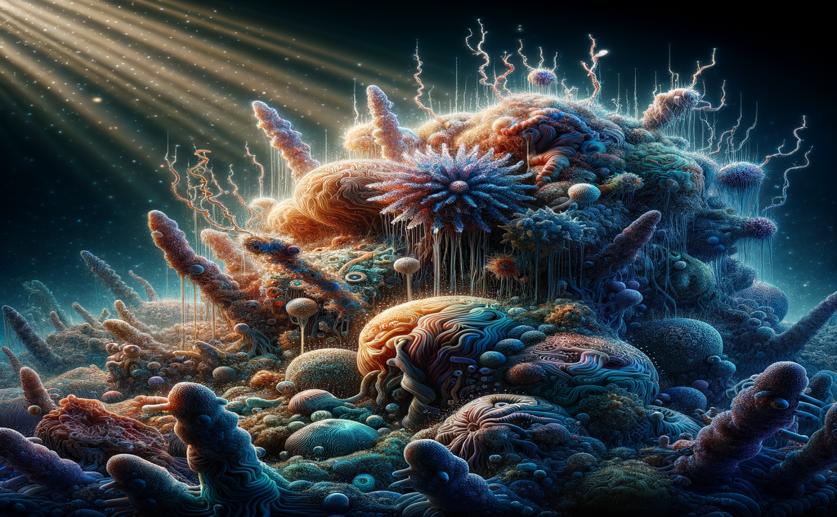
How Deep Ocean Conditions Shape Coral Microbiomes
Jim Crocker
11th June, 2024

Image Source: Natural Science News, 2024
Key Findings
- Researchers from Lehigh University studied four octocoral species in the deep waters of the northern Gulf of Mexico
- The microbiomes of these corals varied significantly between species and were influenced by environmental factors like depth and geographic location
- The coral's genotype also played a crucial role in shaping its microbiome, supporting the concept of phylosymbiosis
EnvironmentEcologyMarine Biology
References
Main Study
1) Coral microbiomes are structured by environmental gradients in deep waters
Published 10th June, 2024
https://doi.org/10.1186/s40793-024-00579-0
Related Studies
2) Coral-associated bacteria demonstrate phylosymbiosis and cophylogeny.
3) Global distribution and diversity of coral-associated Archaea and their possible role in the coral holobiont nitrogen cycle.
4) The Other Microeukaryotes of the Coral Reef Microbiome.
5) Virus-host interactions and their roles in coral reef health and disease.



 19th May, 2024 | Jim Crocker
19th May, 2024 | Jim Crocker